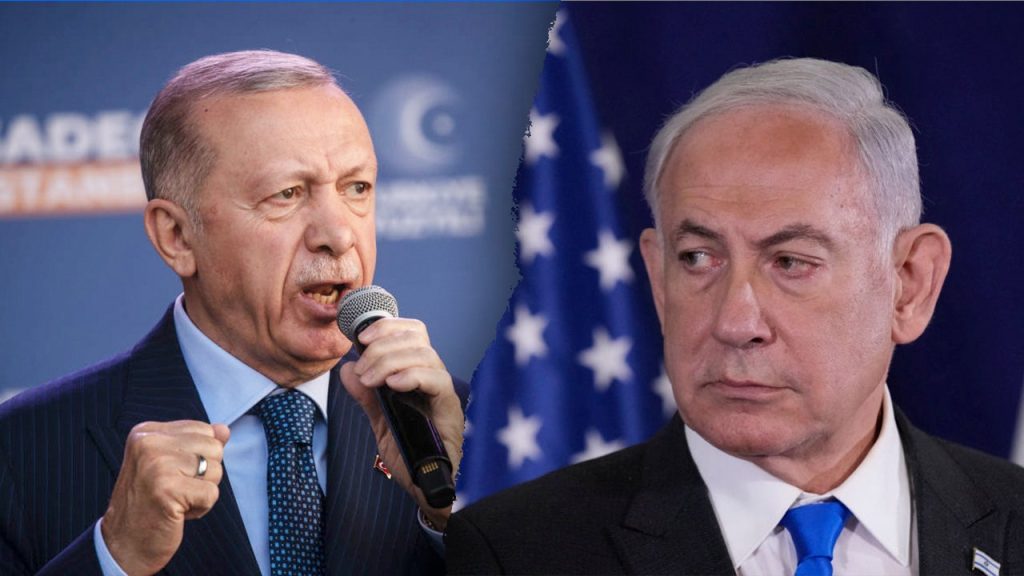In a significant escalation of rhetoric, Turkey’s President Recep Tayyip Erdoğan threatened military intervention in Israel to stop the ongoing conflict in Gaza during a meeting with his Justice and Development Party. Erdoğan emphasized the need for Turkey to be strong to prevent Israel from mistreating Palestine, suggesting that Turkey could take military action similar to its involvements in Karabakh and Libya. Israeli Foreign Minister Israel Katz responded by comparing Erdoğan to Saddam Hussein and warning of a harsh fate for the Turkish leader. These tensions come at a time when Israel is facing increased aggression from Iran-backed militant groups like Hamas, Houthi, and Hezbollah.
The threats made by Erdoğan have raised concerns about potential military intervention by Turkey in Israel, which could further escalate the conflict in the region. The U.S. State Department, Turkish Embassy in Washington, D.C., and NATO have not yet commented on the situation, leaving uncertainties about how efforts are being made to cool tensions between the two nations. Erdoğan’s criticisms of the war in Gaza and his suggestions of military intervention have not been accompanied by specific details of what such action would entail, but his past involvements in conflicts like the one in Libya suggest a willingness to take decisive measures.
Erdoğan’s reference to Turkey’s actions in Libya and the Nagorno-Karabakh region in 2020 as examples of potential military intervention in Israel highlights the country’s history of involvement in regional conflicts. Turkey has denied direct involvement in military actions in certain regions but has been known to provide support to allies through various means, including military training and equipment. As tensions between Turkey and Israel continue to rise, the possibility of military intervention by Turkey remains a concern for regional stability.
Israeli Prime Minister Benjamin Netanyahu has not publicly responded to Erdoğan’s threats, but the two leaders have a history of exchanging harsh criticisms. Both leaders have drawn comparisons to historical figures like Adolf Hitler in response to each other’s actions, reflecting the deep-rooted animosity between their respective nations. The ongoing conflict between Turkey and Israel, as well as the involvement of Iran-backed militant groups in the region, add layers of complexity to the situation, making resolution and de-escalation challenging.
The escalating tensions between Turkey and Israel, as well as the involvement of Iran-backed militant groups, pose significant challenges for regional stability and international diplomacy. The threat of military intervention by Turkey in Israel, as suggested by Erdoğan, raises concerns about the potential for further violence and conflict in the region. Efforts to address the root causes of the conflict and to promote dialogue and diplomacy between the parties involved will be essential in preventing further escalation and achieving a lasting peace in the region. As the situation continues to evolve, the international community will need to remain vigilant and proactive in their efforts to mitigate the risks of further conflict and violence.


